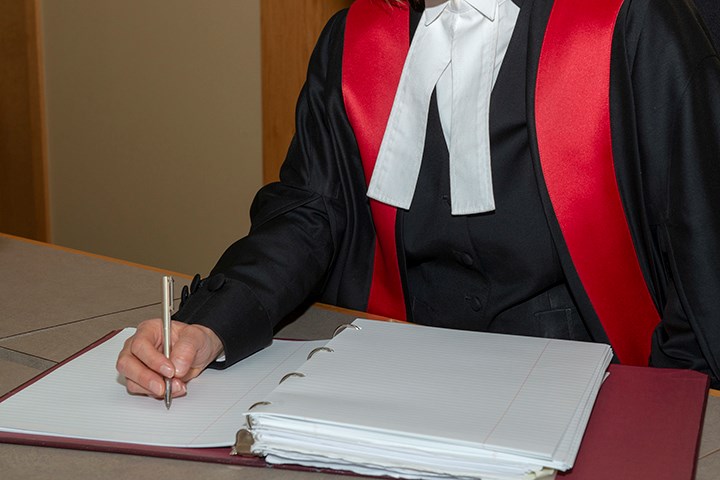A Vancouver man will receive $135,864 in damages, after physical injuries suffered as the result of an October 3, 2018, accident in Dawson Creek.
The plaintiff, 40-year-old Akshay Avishek, was 35 at the time of the incident, and testified that he was stopped at a stop sign when his vehicle was struck from behind, which caused his vehicle to be pushed forward two to three feet. The driver of the other vehicle fled the scene.
Before the accident, Avishek says he was very physically active, and worked on oil rigs doing rigorous physical labour, while outside work he took part in hockey games, football, skiing, and hiking.
According to the court file, Avishek testified that when he woke up the day after the accident, he felt pain in his mid-back, shoulders, and neck, which turned into a “burning pain” between his shoulders. Daily headaches also developed days after the accident, he said.
Avishek claims that the injuries have affected his mood and physical ability, and he has since stopped engaging in recreational sports, as he wants to ensure he can continue working on oil rigs.
He also claimed to have turned down promotions at work for fear of not being able to perform the roles, and fell at work in December 2018, when his misplaced his footing, causing rib fractures and a splenic laceration. The work accident was covered by worker’s compensation and Avisek returned to work in February 2019.
Avishek also cares for his elderly parents when not working, which made the basis for most of the damages sought, in addition to costs for pain medication and physical therapy, as he had regularly done housework and yard work for them.
ICBC did not dispute that Avishek suffered injuries to his neck and back as a result of the accident, noted the court file.
However, they did challenge his evidence regarding the cause of his ongoing pain and the impact of that pain on his functionality, and said he was not a reliable or credible witness.
Justice Jasmin Ahmad agreed that Avishek’s testimony was suspect, but noted the sole issue in determining liability was whether Avishek made “all reasonable” efforts to find the identity of the other driver.
“Mr. Avishek’s overstatement of the effect of the accident-related injuries, his tendency to attribute his ongoing pain solely to the accident, and his self-serving memory of past events make him a less than credible witness,” Ahmad wrote of Avishek’s claims of struggling with household chores, despite working 12-hour oil rig shifts for 20 days or more at a time.
“In my view, his tendency to downplay the role that his work may have on his body bears scrutiny,” added Ahmad.
Ahmad accepted Avishek’s testimony of being in shock after the hit and run, and that Avishek had limited time to regain his composure, in addition to the scene being dark, and so Avishek was not able to note the make of the vehicle that struck him or the licence plate number.
According to the court file, Avishek reported the accident to ICBC the next day and filled out two insurance claim forms, one on October 15, 2018 and one on October 28, 2018.
On the first form, it notes the the accident occurred at the intersection of 8th Street and 90th Avenue in Dawson Creek, while the second form indicates that the accident occurred at 95th Avenue.
ICBC took issue with this inconsistency, but Ahmad noted that it was not significant in upholding Avishek to a reasonable standard by the court.
“He is not to be held to the standard of perfection,” wrote Ahmad, noting that Avishek took out a newspaper ad five months after the accident, seeking witnesses, but to no avail.
According to the court file, ICBC claimed was there is no record of a call or report to the police, and that Avishek did not canvass anyone in the neighbourhood or place any posters in the area.
However, the file also explains that ICBC is not alleging fraud, nor are they suggesting that the accident didn’t happen.
Justice Ahmad said it’s likely that Avishek did contact the police, as he had filed with ICBC. However, the justice further noted that placing posters would been highly unlikely to produce any results.
“I accept that in the circumstances, Mr. Avishek did what he could at the time of the accident to ascertain the driver’s identity,” wrote Ahmad.
The ruling was made in Vancouver Supreme Court on October 23.



